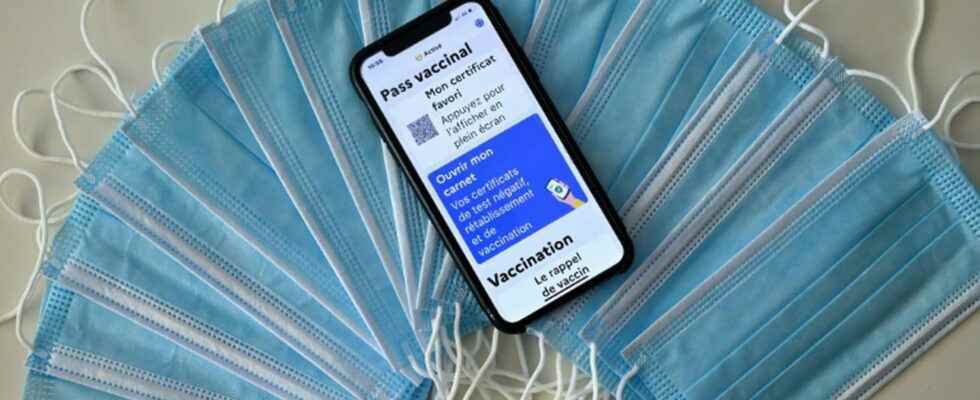Taking advantage of the improvement on the front of the fight against Covid-19, Jean Castex was able to announce Thursday the end of wearing a mask, except in transport, and the suspension of the vaccine pass from March 14.
Invited to the TF1 newspaper, the Prime Minister first mentioned the war in Ukraine, where “the situation on the ground is undeniably very unfavorable” before coming to the epidemic, which has plagued the lives of the French for more than two years.
On this side, “the situation is improving thanks to our collective efforts, thanks to the measures that we have taken”, declared Jean Castex. And “the conditions are met for a new phase of relief measures” which will take effect a month before the first round of the presidential election on April 10.
“From Monday March 14 we will suspend the application of the vaccine pass wherever it applies,” he said.
On the same date, he announced the “end of the wearing of the compulsory mask in all places where it is still” applied, “that is to say rather inside”.
“Wearing a mask will no longer be required from Monday March 14 in the workplace, nor in classrooms,” said Matignon.
Since February 28, the mask was already no longer required in closed places subject to the vaccination pass.
However, two measures continue to remain in force. “Wearing a mask will remain compulsory in public passenger transport, given the crowding,” said Mr. Castex. And this “for a few more weeks”, underlined the Minister of Health, Olivier Véran, on the move to the Pompidou hospital in Paris.
In addition, the mask and the health pass (presentation of proof of vaccination, a negative test or a certificate of recovery) will always be required in “health establishments, retirement homes, establishments welcoming people with disabilities who are particularly fragile”, as well as “the vaccination obligation, which applies to caregivers”.
– “The decline is accentuated” –
This lifting of restrictions is possible thanks to a clear improvement on the health front.
The winter wave of Covid-19 has been in decline for several weeks. On average over seven days, the number of new cases of contamination stood at 52,222 Thursday evening against more than 66,000 a week ago.
The pressure is also reduced in the hospital, where 2,231 people are in critical care.
The government had so far mentioned a passage below the threshold of 1,500 patients in critical care by mid-March among the criteria for lifting all or part of the vaccination pass, in force since January 24.
In intensive care units, there is a “decrease of around 400 to 500 patients per week”, noted Olivier Véran, welcoming that hospitals are no longer forced to deprogram other care.
“The drop is getting steeper, it’s getting bigger,” he said.
“If a new variant appears and is more dangerous, we will be more than vigilant”, he however assured.
The vaccination pass succeeded in France to the health pass, of which it is a stricter version. It requires French people to be vaccinated against Covid to access many places, such as restaurants and cinemas, while its predecessor left the possibility of a negative test to the coronavirus.
The goal pursued by the government was twofold: to limit the risks of contamination in the places concerned, even if the vaccines have largely lost their effectiveness against the transmission of the virus, and to encourage the non-vaccinated to take the plunge.
By announcing the lifting of the last restrictions, the government is respecting the timetable it had set, betting on the improvement of the health situation.
When he had mentioned a possible suspension of the vaccination pass in mid-March, a few weeks before the first round of the presidential election, the opposition had read a decision serving the interests of President Emmanuel Macron. This will formalize in the evening his candidacy for a second term.
All rights of reproduction and representation reserved. © (2022) Agence France-Presse
